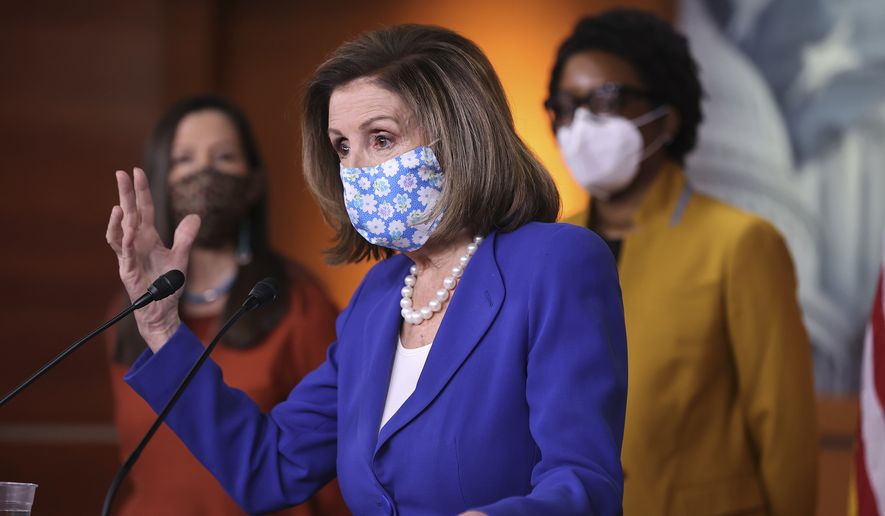House Speaker Nancy Pelosi said on Wednesday she isn’t sure if the administration’s $2.25 trillion infrastructure package headed to Congress will win much Republican support in the House, but she asserted it has “bipartisan support among the American people.”
“Who’s going to be against getting the lead out of the water for our children?” the California Democrat said during an event in San Francisco. “You would hope that would be attractive to Republicans in Congress.”
Thus far, however, Republican leaders have blasted the size and scope of the first phase of the plan, which will include physical projects such as roads, bridges and broadband services.
The Penn Wharton Budget Model estimated on Wednesday that the spending plan the White House has outlined thus far would actually cost $2.7 trillion over a decade. Adding to the price tag will be a second phase that Mr. Biden is expected to soon unveil focused on “human infrastructure.”
Senate Minority Leader Mitch McConnell has attacked the plan as too large to win bipartisan support.
“Our nation could use a serious, targeted infrastructure plan,” he said last week.
“There would be bipartisan support for a smart proposal. Unfortunately, the latest liberal wish-list the White House has decided to label ‘infrastructure’ is a major missed opportunity by this administration.”
Mrs. Pelosi, appearing at a community health clinic, touted another massive spending package, the $1.9 trillion coronavirus relief bill that Congress passed last month. She spoke as Democratic lawmakers took a victory lap over the popular package by holding a series of “teach-ins” about elements of the stimulus.
“Vaccines in the arm, money in the pockets,” Mrs. Pelosi said, noting that 150 million
Americans have so far received the stimulus checks of up to $1,400 in the package. “Sadly, we had to pass this legislation with only Democratic votes.”
A Pew Research Center poll last month found that 70% of U.S. adults — including 41% of Republicans and Republican-leaning independents — backed the measure.
Only a third thought the package was too big. Forty-one percent thought it was about the right size while another 25% said it should have been bigger.
• David Sherfinski contributed to this article.
• Kery Murakami can be reached at kmurakami@washingtontimes.com.




Please read our comment policy before commenting.